#Shubert Theatre New York
Explore tagged Tumblr posts
Text
Hells Kitchen - Shubert Theatre New York 11.05.2024
Hells Kitchen - Shubert Theatre New York 11.05.2024 #musical #aliciakeys #shuberttheatrenewyork #amazing #review #hellskitchen #broadway #review
Wow. Was für eine Show! Was für ein grossartiger Cast! Was für eine tolle neue Produktion am Broadway: “Hells Kitchen” mit der Musik von Alicia Keys im New Yorker Shubert Theatre – was kann man anderes sagen als “absolutely worth the trip” und dabei ist Soul und R&B sonst nicht wirklich meine Musik. Kein Wunder hat “Hells Kitchen 13 Nominierungen für die Tony Awards erhalten… Continue reading…

View On WordPress
#Alicia Keys#Brandon Victor Dixon#Broadway#Camille A. Brown#Chris Lee#Coming of Age#Gareth Owen#Hells Kitchen#Kecia Lewis#Kritik#Maleah Joi Moon#Michael Greif#Musical#Peter Nigrini#R&B#Rezension#Robert Brill#Shoshana Bean#Shubert Theatre New York#Soul#Vorstellungsbesprechung
1 note
·
View note
Text
Adrianne Lenker – Music Hall of Williamsburg – March 18, 2024

Her sixth solo studio album, Bright Future, drops on Friday, and ahead of its release, Big Thief bandleader Adrianne Lenker was back home in Brooklyn on Monday night for an intimate, sold-out show at Music Hall of Williamsburg.

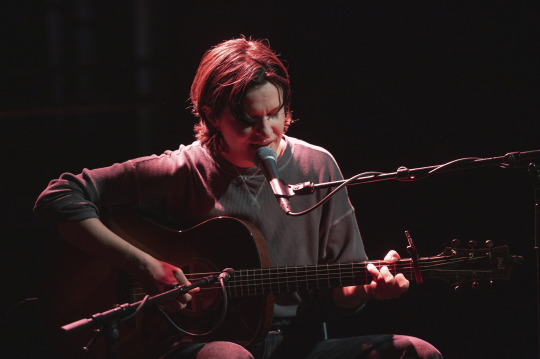

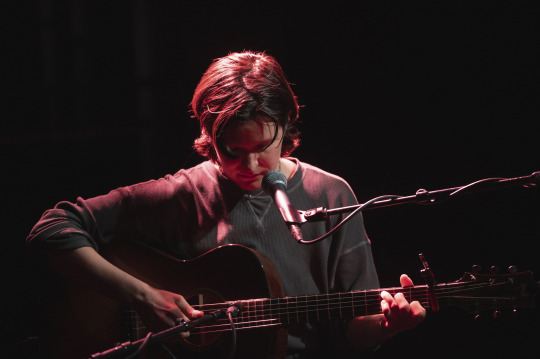
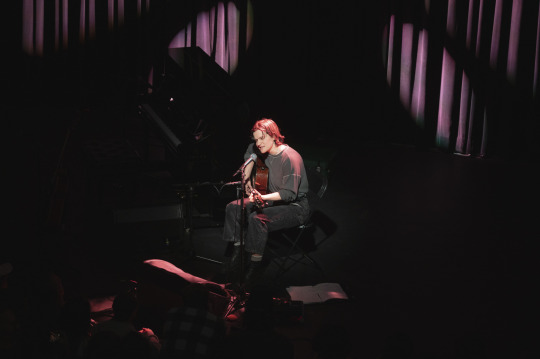

(Adrianne Lenker Shubert Theatre in Boston on 11/12-13.)
(Adrianne Lenker plays Kings Theatre on 11/18-19.)
(Adrianna Lenker plays Union Transfer in Philadelphia on 11/25-26.)
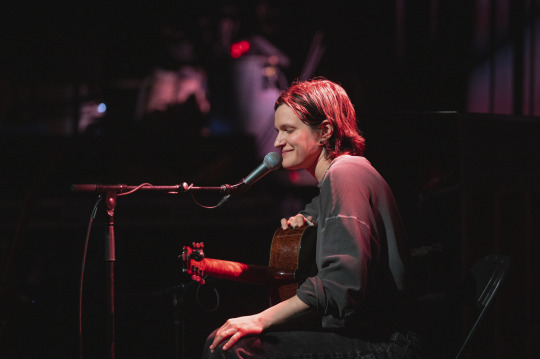

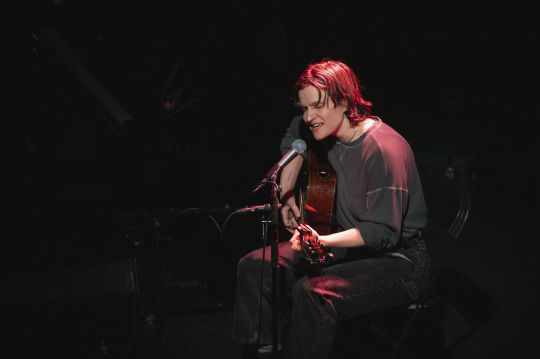
Photos courtesy of DeShaun Craddock | dac.photography
#Adrianne Lenker#Big Thief#Bowery Presents#Bright Future#Brooklyn#DeShaun Craddock#Kings Theatre#Live Music#Music#Music Hall of Williamsburg#New York City#Photos#Shubert Theatre#Union Transfer#Williamsburg
4 notes
·
View notes
Text

To Kill A Mockingbird on Broadway.
#to kill a mockingbird#broadway#Shubert theatre#cool#New York#New York city#nyc#Manhattan#midtown#neon
1 note
·
View note
Text
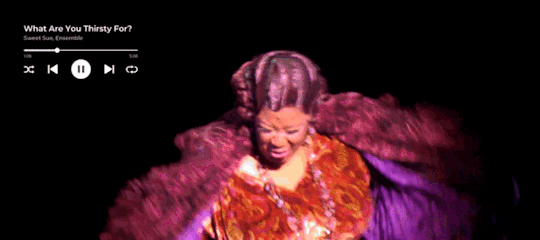

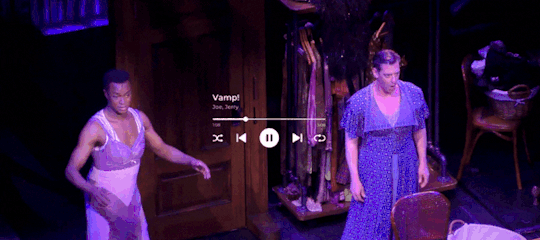
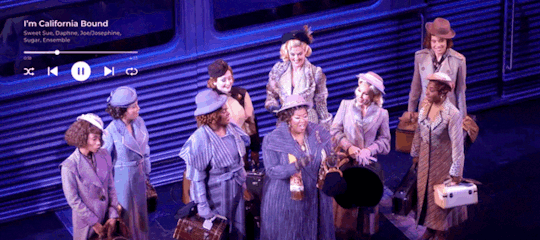
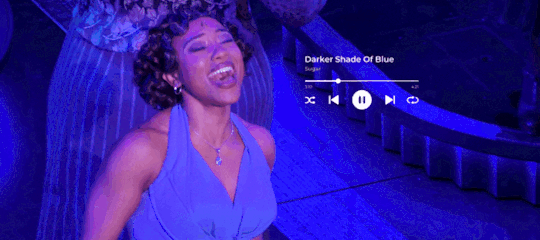

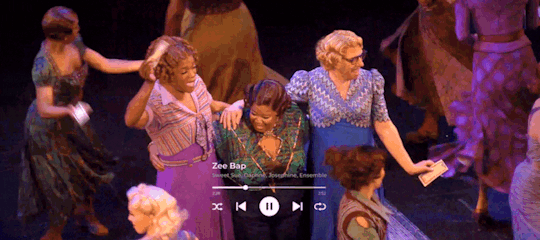









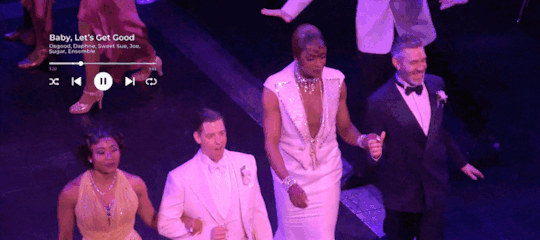
SOME LIKE IT HOT (2022) shubert theatre, new york
inspo + bonus:

📸: @bikinibottomdayz
#pls don't share outside tumblr!#some like it hot musical#slih#natasha yvette williams#j harrison ghee#christian borle#adrianna hicks#kevin del aguila#usergif#broadwayedit#musicaltheatreedit#theatreedit#musicaledit#musicalgifs#slih gifs#star's gifs
281 notes
·
View notes
Text
Fredi Washington
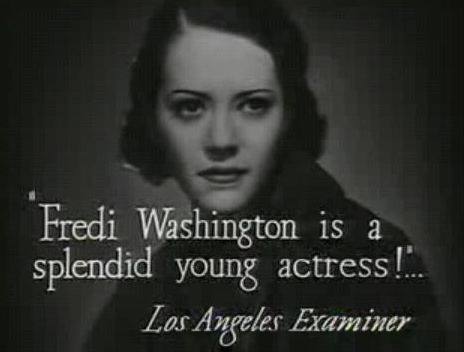
Fredericka Carolyn "Fredi" Washington (December 23, 1903 – June 28, 1994) was an American stage and film actress, civil rights activist, performer, and writer. Washington was of African American descent. She was one of the first Black Americans to gain recognition for film and stage work in the 1920s and 1930s. Washington was active in the Harlem Renaissance, her best known role being Peola in the 1934 film version of Imitation of Life, where she plays a young light-skinned Black woman who decides to pass as white. Her last film role was in One Mile from Heaven (1937), after which she left Hollywood and returned to New York to work in theatre and civil rights activism.
Fredi Washington was born in 1903 in Savannah, Georgia, to Robert T. Washington, a postal worker, and Harriet "Hattie" Walker Ward, a dancer. Both were of African American and European ancestry. Washington was the second of their five children. Her mother died when Fredi was 11 years old. As the oldest girl in her family, she helped raise her younger siblings, Isabel, Rosebud, and Robert, with the help of their grandmother. After their mother's death, Fredi and her sister Isabel were sent to the St. Elizabeth's Convent School for Colored Girls in Cornwells Heights, near Philadelphia, Pennsylvania.
While still in school in Philadelphia, Washington's family moved north to Harlem, New York. Washington graduated from Julia Richman High School in New York City.
Washington's entertainment career began in 1921 as a chorus girl in the Broadway musical Shuffle Along. She was hired by dancer Josephine Baker as a member of the "Happy Honeysuckles," a cabaret group. Baker became a friend and mentor to her. Washington's collaboration with Baker led to her being discovered by producer Lee Shubert. In 1926, she was recommended for a co-starring role on the Broadway stage with Paul Robeson in the play Black Boy. She quickly became a popular, featured dancer, and toured internationally with her dancing partner, Al Moiret.
Washington turned to acting in the late 1920s. Her first movie role was in Black and Tan (1929), in which she played a Cotton Club dancer who was dying. She acted in a small role in The Emperor Jones (1933) starring Robeson. In 1933, Washington married Lawrence Brown, the trombonist in Duke Ellington's jazz orchestra. That marriage ended in divorce. Washington also played Cab Calloway's love interest in the musical short Cab Calloway's Hi-De-Ho (1934).
Her best-known role was in the 1934 movie Imitation of Life. Washington played a young light-skinned Black woman who chose to pass as white to seek more opportunities in a society restricted by legal and social racial segregation. As Washington had visible European ancestry, the role was considered perfect for her, but it led to her being typecast by filmmakers. Moviegoers sometimes assumed from Washington's appearance—her blue-gray eyes, pale complexion, and light brown hair—that she might have passed in real life. In 1934, she said the role did not reflect her off-screen life, but "If I made Peola seem real enough to merit such statements, I consider such statements compliments and makes me feel I've done my job fairly well." She told reporters in 1949 that she identified as Black "...because I'm honest, firstly, and secondly, you don't have to be white to be good. I've spent most of my life trying to prove to those who think otherwise ... I am a Negro and I am proud of it."[7] Imitation of Life was nominated for an Academy Award for Best Picture, but it did not win. Years later, in 2007, Time magazine ranked it as among "The 25 Most Important Films on Race."
Washington's experiences in the film industry and theater led her to become a civil rights activist. In an effort to help other Black actors and actresses find more opportunities, in 1937 Washington co-founded the Negro Actors Guild of America, with Noble Sissle, W. C. Handy, Paul Robeson, and Ethel Waters. The organization's mission included speaking out against stereotyping and advocating for a wider range of roles. Washington served as the organization's first executive secretary. She was also heavily involved with the National Association for the Advancement of Colored People, widely known as the NAACP. While working with the NAACP, Fredi fought for more representation and better treatment of Black actors in Hollywood because she was one of the few Black actors in Hollywood who had some influence with white studio executives. Aside from working with those organizations to fight for the rights of Black actors, Washington also advocated for the federal protection of Black Americans and was a lobbyist for the Dyer Anti-Lynching Bill, which the NAACP supported.
Despite receiving critical acclaim, she was unable to find much work in the Hollywood of the 1930s and 1940s; Black actresses were expected to have dark skin, and were usually typecast as maids. Directors were concerned about casting a light-skinned Black actress in a romantic role with a white leading man; the film production code prohibited suggestions of miscegenation. Hollywood directors did not offer her any romantic roles. As one modern critic explained, Fredi Washington was "...too beautiful and not dark enough to play maids, but rather too light to act in all-Black movies..."
Washington was a theater writer, and the entertainment editor for The People's Voice (1942–1948), a newspaper for African Americans founded by Adam Clayton Powell Jr., a Baptist minister and politician in New York City who was married to her sister Isabel Washington Powell. She was outspoken about racism faced by African Americans and worked closely with Walter White, then president of the NAACP, to address pressing issues facing Black people in America.
In 1952, Washington married a Stamford dentist, Hugh Anthony Bell, and moved to Greenwich, Connecticut.
Fredi Washington Bell died, aged 90, on June 28, 1994. She died from pneumonia following a series of strokes at St. Joseph Medical Center in Stamford, Connecticut.
25 notes
·
View notes
Text


Kieran Culkin and Susan Sarandon during "Autobahn" Curtain Call at The Little Shubert Theatre in New York City, New York, United States. 2004 (Photo by Dimitrios Kambouris)
#kieran culkin#susan sarandon#people#/#me if i met susa honestly giggle goob mode#also i fear during this time he looks like every white boy i had a crush on at school 🫠
72 notes
·
View notes
Text
"Welcome to the Theatre": Diary of a Broadway Baby
Hell's Kitchen
April 16, 2024 | Broadway | Shubert Theatre | Evening | Musical | Original | 2H 30M

Fresh off its off-Broadway run that ended January 17th of this year, Hell's Kitchen loses nothing and gains even less. The snap-of-a-finger transfer capitalized on the strong ticket sales, but doomed this musical's clunky book. This season, many a show falls victim to tight turnarounds and are not given the time they need to truly improve. While critics of the off-Broadway production agreed this was a rousing Alicia Keys tribute show with phenomenal vocals, the book failed to deliver. Underdeveloped side characters, ill-constructed book, songs that are less about the story and more about the name recognition.
Hell's Kitchen's tragedy is not in its overdone mother/daughter teen-year bickering, or absent father, but in its unfulfilled potential. Much like the scaffolding set design (perhaps too unfavorably reminiscent of last season's flop New York, New York) the bones are strong as steel, but devoid of any real meat.
As a lead, Ali is sweet and infuriating and the quintessential teenager making horrible and immature life choices and being mad at her two-job-working mother who doesn't want her seventeen-year-old daughter to get involved with a grown ass man (age unspecified). I'm too old to sit through that story, and the dialogue is truly abysmal even to those who are invested. The music, like in any jukebox, takes center stage. And while performed and choreographed well, songs are often shoehorned in and do little to serve the already-weak book. Many of the songs are over-riffed, which may be a sure-fire crowd-pleaser, but I am tired of Elphabas--oh wait, Shoshana Bean was an Elphaba. It all makes sense now... oh no...
Hell's Kitchen has small moments of relief among the noise, but the emotional payoff to nearly all of Miss Liza Jane's (gorgeously sung) numbers feels thoroughly unearned and designed to manipulate audiences into believing this show has something deeper to say. It doesn't. Subplots of police brutality and systemic racism are thrown into the pit out of nowhere but are never given the opportunity to become something fleshed-out. It's as if the book wants to check these issues off the list with rousing, heartbreaking songs that are jarringly inserted into the narrative. Ultimately, the joy of seeing such a diverse cast on stage, performing so well, was eclipsed by the actual story.
Still, this is a show with undeniable commercial appeal. Everyone and their mother can sing along (loudly, off-key) to the two Alicia Keys songs they all know and hear blasting out of pedicabs all over Times Square. The tourists will flock to it, not for artistry, but for name recognition. And if this is how young people come to Broadway, that's great. I'll just be the bitter old codger shaking my fist at the youth's lack of taste.
Verdict: A Long Slog to Curtains
A Note on Ratings
#hell's kitchen#broadway#musical theatre#alicia keys#welcome to the theatre: diary of a broadway baby#theatre#didn't hate it as much as i feared i would#found certain aspects far more appalling than i was prepared for
8 notes
·
View notes
Text


Shubert Alley in the Broadway Theatre District, New York City (2016)
22 notes
·
View notes
Text
New video by CBS News New York on Opening night on Broadway!!
#eddie redmayne#eddie redmayne cabaret#cabaret nyc#cabaret new production#gayle rankin#sally bowles#the emcee#opening night cabaret#opening night on broadway#cbs video#august wilson theatre#cbs new york
3 notes
·
View notes
Text
'Hell's Kitchen' Blasts Onto Broadway and Electrifies With New York's Resounding Energy
Hell's Kitchen' is Alicia Keys and the creative team at its best. I can't recommend it enough.
Maleah Joi Moon, Chris Lee in Hell’s Kitchen (Marc J. Franklin) Hell’s Kitchen, premiering on Broadway in its transfer from the Public Theater is nothing short of gorgeous perfection. Though the creative team rendered a phenomenal production in the fall of 2023 at the Public’s Newman Theater, the 299 seat venue and smaller stage offered a constricted space. The Shubert Theatre Broadway is the…
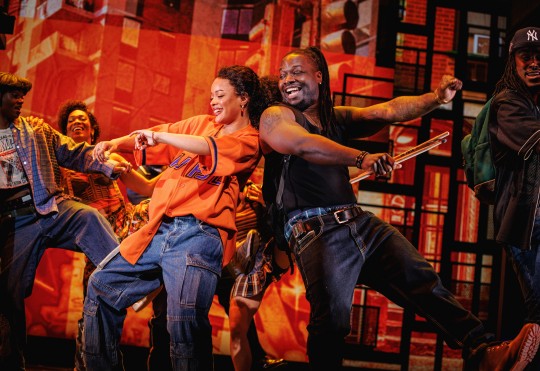
View On WordPress
#Adam Blackstone#Alicia Keys#Brandon Victor Dixon#Camille A. Brown#Chris Lee#Hell&039;s Kitchen#Kecia Lewis#Kristoffer Diaz#Maleah Joi Moon#Michael Greif#Shoshana Bean
2 notes
·
View notes
Note
Poetz, I have a task for you (if you’re up to completing it!!). Could you list (or do you already have a list) of all the locations that DB Faberry do the deed? Of course there’s the obvious ones like their separate and communal living spaces, Rachel’s dressing rooms, Rachel’s fathers’ home…where else?
I'm afraid I might disappoint you because their list really isn't all that adventurous in terms of location.
Obviously, the beds, showers, living room sofas, chairs, and kitchen tables and counters across three apartments and one house. Also the baby grand piano that goes into their house in Riverdale. Really, they manage to christen every room in that house except their daughters’ bedrooms - and possibly the backyard on one nice summer day. Don't worry, there's a fence.
Rachel’s childhood bedroom in Lima. (But never Quinn’s.)
The guest bedroom and shower at the Berrymen's house in Fairfield.
Various hotels in many, many cities like Philadelphia, Detroit, Columbus, Los Angeles, Paris, and even New York, including that suite the Plaza with the decadent shower.
The cottage in East Hampton, both inside and out, fully enjoying the pool and the hot tub.
Dressing rooms at the Palace, Shubert, Winter Garden, Cort, and Ambassador Theatres to name a few.
Also maybe a quickie or two in the dressing room at the studio where Union City Blues was filmed.
They may have fooled around a bit in Quinn’s (tiny) office at HarperCollins, but they never actually had sex there. They saved the bending over the desktop fantasy for Quinn’s home office at their apartment in the Upper West Side.
Same with Rachel's trailer on the set of the Confessions film, since they had Calliope when Quinn visited.
Despite what Santana believes, they DO NOT have sex in every bathroom - at least not the public ones, because gross. (Although they might have gotten carried away that one time when they were drunk at that dance club with Santana and Josie.)
6 notes
·
View notes
Text


Here we see A original bank check from 1946 signed by famous tenor Richard Tauber (1891-1948) in New York. This was the fee for a performance at the Shubert Theatre with Lehars “Land des Lächelns”. On the antique postcard we see the Tenor 1916.
#opera#classical music#music history#bel canto#composer#classical composer#aria#classical studies#classical singer#classical singing#classical muscian#classical musicians#classical history#chest voice#musician#musicians#historian of music#maestro#Broadway#Royal Opera House#Covent Garden#operetta#actor#Richard Tauber#Tauber#lyric Tenor#Tenor
3 notes
·
View notes
Text
The Longest-Running Shows in Broadway History

Broadway theater is a cultural institution in New York City. There are 41 Broadway theaters in the Broadway Theater district, each of which has more than 500 seats, and many, including the Hudson Theatre and Winter Garden Theatre, have been in operation for more than 100 years. A testament to Broadway's history and popularity, 126 productions have exceeded 1,000 performances.
Many Broadway shows, especially plays, start as limited engagements, meaning they already have a predetermined closing date before opening. Others open without a closing date and their run is determined by ticket sales and commercial success. Thus, if a show is successful enough, the theater and production company will likely continue to run it until demand for tickets declines. The Phantom of the Opera is a good example of this.
A seven-time Tony Award winner, including Best Musical, The Phantom opened at the Majestic Theatre on January 9, 1988, and ran for 13,981 performances until closing on April 16, 2023. It is the longest-running show in Broadway history and has become synonymous with musical theater, with touring shows throughout the United States and United Kingdom and international productions in more than 20 countries, including China, Canada, Romania, and Thailand.
The acclaimed musical, written by Andrew Lloyd Webber with lyrics provided by Charles Hart and Richard Stilgoe, became the first Broadway show to reach 10,000 performances in February 2012 and was the most profitable show in theater history until 2014, when it was surpassed by The Lion King. Michael Crawford and Sarah Brightman portrayed the lead roles of the Phantom and Christine Daae in the original West End and Broadway productions, and dozens of performers have since portrayed these characters.
The 1996 revival of Chicago, which won six Tony Awards, is the second-longest running Broadway show in history. It has been performed more than 10,920 times at three venues, including the Richard Rodgers Theatre, the same venue that hosted the original show for 936 performances beginning in 1975. It moved to the Shubert Theatre in February 1997 and has been shown at the Ambassador Theatre since 2003. It is the current longest-running show on Broadway, the longest-running revival, and the longest to have debuted on Broadway.
The Lion King, Wicked, and Cats round out the top five longest-running Broadway productions of all-time. The Lion King, produced by Disney Theatrical Productions, opened at the Orpheum Theatre in Minnesota before transferring to the New Amsterdam Theater on Broadway in October 1997. It relocated to the Minskoff Theatre in 2006 and has been playing there ever since, now exceeding 10,540 performances. It was the first Broadway show to earn $1 billion in cumulative gross and became the most financially successful entertainment production, stage or film, in 2014 with a global gross of more than $6.2 billion.
Wicked, which is also still playing, has been running for more than 8,080 performances at the Gershwin Theatre, the same venue at which it opened in October 2003. It surpassed Lloyd Webber's Cats as the fourth-longest running Broadway show on April 11, 2023, five days prior to another Lloyd Webber show, Phantom, ending its 35-year Broadway run. Cats, meanwhile, ran for 7,485 performances from October 1982 to September 2000. It was the first Broadway show to exceed 7,000 performances.
Six other shows - Les Miserables, A Chorus Line, Oh! Calcutta! (revival), Mamma Mia!, Beauty and the Beast, and Rent - have had more than 5,000 performances on Broadway.
1 note
·
View note
Link
0 notes
Text
Our Town at The Barrymore Theatre
AUTHOR: ARTSY CHOW ROAMER
OUR TOWN
AT THE ETHEL BARRYMORE THEATRE
I love theatre and many of you may not know that I co-founded a community playhouse in my hometown in Tennessee where the local high school drama teacher could do her thing after retiring. It let me continue my interest and love for the behind-the-scenes kind of work that had thrilled me during my days in high school and college.
This led my husband and I to buy season tickets several times in Atlanta when Kenny Leon was still directing in our neck of the woods at the Alliance Theatre. If Kenny directed it, you would want to see it no matter what the play. That’s why I was excited to read that he will be bringing his version of the classic Thornton Wilder play Our Town to the historic Ethel Barrymore Theatre in New York City right in the heart of Broadway.
THE HISTORY
Named after the actress from the famous Barrymore family acting dynasty, Ethel was the it girl of her time when the theatre opened in December of 1928. Designed by Herbert J. Krapp in a combination of Mediterranean, Elizabethan and Adam styles, it is the last standing theatre built by the brothers, Lee and J.J. Shubert. It houses a large, beautiful stage with 1,058 seats. Run by the Shubert Organization to this day, the exterior is considered to be a New York City landmark in the heart of the theatre district in Manhattan.
Built from white bricks and rusticated terra cotta, the design was inspired by Roman baths with large arches and screens. The auditorium houses box seats at the balcony level with a coved ceiling and dome above. Roman arches and gold ornamental plasterwork abound along with a sloped orchestra level. An ornate lounge was located in the basement along with a now demolished stage house.
The Shubert brothers built the theatre in honor of Ethel when she agreed to have them handle her career and she stayed with them throughout performing in it the final time in 1940. It has remained a legitimate acting venue staging musicals and plays and is one of the few to have never been sold or renamed. It has been updated and refurbished both in the ‘80’s and early 2000.
THE WRITER
Thornton Niven Wilder was an American playwright and novelist winning the Pulitzer Prize three times for the novel The Bridge of San Luis Rey and two plays, Our Town and The Skin of our Teeth. He also won the U.S. National Book Award for his novel The Eighth Day. Born in 1897 in Madison, Wisconsin to parents, Amos and Isabella Wilder, his father was a newspaper editor and diplomat while his mother raised the family of five children. Thornton’s twin was stillborn.
The other siblings were writers with the older brother Amos becoming a noted poet at Harvard Divinity School and younger sisters Charlotte and Isabel becoming writers of note themselves. Said to be overly intellectual, Wilder would retreat to the library in school to escape the teasing and hide away from the humiliation of not fitting in. He would serve in both WWI and II rising to a lieutenant colonel status. He received his undergraduate degree from Yale University where he refined his writing skills and went on to earn his Master of Arts degree in French Literature from Princeton University.
After an eight-month residency in Italy, he published his first book, The Cabala, in 1926 followed by The Bridge of San Luis Rey in 1927 which brought him commercial success along with The Pulitzer Prize allowing him to quit his teaching job at The Lawrenceville School in order to write full time. In 1938, he would write the play Our Town and win his second Pulitzer and in 1940, The Skin of our Teeth would follow for the third prize.
youtube
THE PLAY
Our Town is a three-act play that playwright Edward Albee called “the greatest American play ever written”. It presents life in a fictional town called Grover’s Corners through the lives of its citizens between the years 1901 through 1913. Wilder uses metatheatrical devices setting the play in the actual theatre where it is being performed. A stage manager is the main character directly talking to the audience, fielding questions, playing some of the rolls and bringing in guest lecturers.
Left photo: Courtesy Historical Society of Princeton Right photo: Stage Publishing Company, Inc.; photograph by Alfredo Valente
The play is largely performed on a bare stage with no set while the performers mime actions without the use of props. The original stage manager was played by Frank Craven. In Act I, he introduces the audience to Grover’s Corners, New Hampshire and the people living there in 1901. We meet folks like the milkman, the boy who delivers the papers, the town doc, the Webb and Gibbs families and Professor Willard. Editor Webb will provide all the details about the town from socioeconomic status to the lack of culture and art while the stage manager leads you through pivotal moments throughout the day and evening. We meet the town drunk, the church ladies who gossip and the children of the Webb and Gibbs families who like each other very much.
Act II opens three years later and the kids are ready to get married. The stage manager takes us through their ups and downs together and how love works to get them to the altar. Act III opens nine years later and deals with death and eternity as the stage manager focuses on the cemetery in town where five people are buried since the wedding took place; some surprising and some not but one will teach us a lesson about appreciating the simple things in life.
THE CAST
It might surprise you to find out that Jim Parsons will be your Stage Manager for this run of the play. Parson’s, made famous by playing nerdy Sheldon Cooper in the Big Bang Theory, loves Broadway and can’t wait to get his chops around this more serious role. Katie Holms, the ex Mrs. Tom Cruise, will be making her come back as Mrs. Webb after sending her daughter off to college this year. Richard Thomas of The Waltons fame will be playing her husband while Zoey Deutch will play the doomed Emily Webb.
They lead a cast of 28 very talented actors including Ephraim Sykes as George Gibbs, Billy Eugene Jones as Dr. Gibbs and Michelle Wilson as Mrs. Gibbs. Julie Halston as Mrs. Soames and Donald Webber Jr. as Simon Stimson round out the main players in this wonderful version of the beloved play. You can bet Kenny Leon’s vision of the classic will be very different from any other you have seen before with this cast in place.
THE DIRECTOR
Last but not least, the talented Mr. Leon. While he may have been born in Florida, we like to claim him since he graduated from Clark Atlanta University. He gained prominence in 1990 when he became one of the few African Americans to head a major nonprofit theater as the artistic director for the Alliance Theatre in Atlanta. During his time there, the endowment rose for the company from $1 million to $5 million as he staged productions like Elton John and Tim Rice’s musical Aida that went on to Broadway and Alfred Uhry’s The Last Night in Ballyhoo.
He left in 2000 to pursue other projects including being a co-founder and artistic director for True Colors Theatre Company a group based in both Atlanta and Washington, D.C. He won a Tony Award for his direction of A Raisin in the Sun in 2014 and was nominated for his versions of Fences in 2010 and A Soldier’s Play in 2019. He received Emmy Award nominations for Hairspray Live! (2017), American Son (2019) and Robin Roberts Presents: Mahalia (2021).
A stellar reputation has gotten him gigs with some of the best in acting land such as Denzel Wahington, Phylicia Rashad, Audra McDonald, Blair Underwood, David Alan Grier and Viola Davis just to name a few. In 2015, Leon directed a musical version of The Wiz for NBC and partnered with Cirque du Soleil who plans on taking it to Broadway. In 2022, a return to his old stomping grounds brought Trading Places: the Musical! to the Alliance directed by Leon. In short, his range is unbelievable-second only to his massive talent.
youtube
CONCLUSION
As you can see, Kenny Leon’s version of a classic play, in a historic theatre, named after an acting family dynasty will not be one to miss. This cast will be bringing the street cred with them as they bring these characters to life and I imagine Kenny will be up for a load of awards next time at the Tony’s. I rather like that thought….don’t you? Home town boy makes very good. Break a leg Kenny.
If you liked what you read, you may also like other posts under Artful Ideal. There you will find posts on art, books, theaters and other artsy things you might be interested in. Until then…
Cheers,
ArtsyChowRoamer
Follow me on You Tube, Facebook, Pinterest, Instagram & Twitter
0 notes
